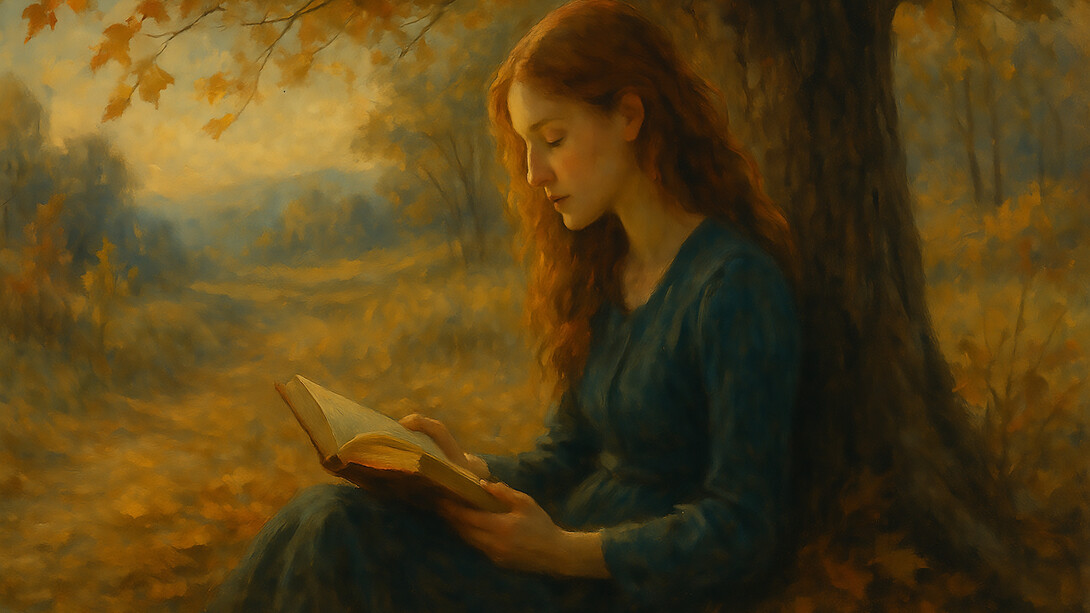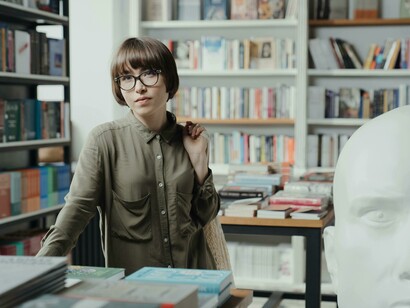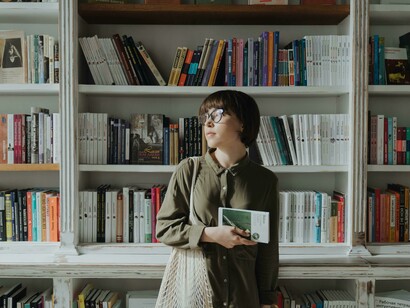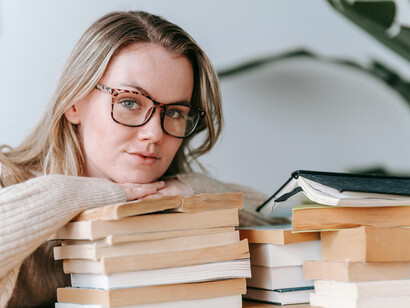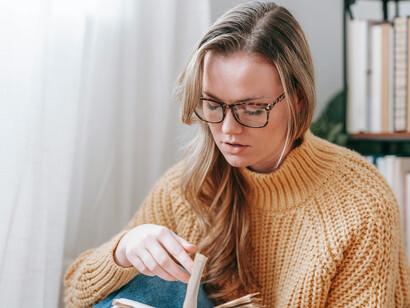When we hear people talk about their love for books, they usually recall a favourite story, the first book they ever read, or what they are currently reading. But what we rarely hear is the why or who brought them to books in the first place.
The smell of stories
I remember in primary school lunchtimes in the library, nestled in colourful bean bags, surrounded by mural walls and stories I’d never heard of before. I also remember playing chess with my friend and making up rules as we played. But what lingers most is the scent of old pages and the quiet magic of stories waiting to be chosen. Still, as lovely as it sounds, that wasn’t the moment I fell in love with literature. That would come later.
A book from the closet shelf
It was a teacher—kind, motivating, and endlessly understanding-who opened the door. He pulled Pride and Prejudice from a small closet room filled with worn covers and endless possibilities. That novel remains one of my favourites. But the moment I truly understood the power of literature came later still, with The Book Thief by Markus Zusak. It opened something in me. To feel so much from words on a page. To sob, to admire, to carry a character’s kindness with you long after the last page, that was new.
Escaping without running away
I started reading seriously around age fifteen. Looking back, I see how my mind and body were sending messages: I was lonely, even if surrounded by people. I felt unsure of my thoughts and even about the things I said. I was growing up alongside other teenagers swept up in a tsunami of emotions, and sometimes we were unkind to one another simply because we didn’t know how else to be. Books became a place to rest from the noise, a way to disappear into characters rather than disappear from myself. I didn’t want to feel anxious or depressed, and reading gave me a softer kind of escape, one that didn’t harm my mental wellbeing but gave me room to breathe.
A quiet strength
I’ve always been an introvert, and society doesn’t always know what to do with people like us. We’re often mistaken for dull or distant. But we’re not, we’re observant, curious, thoughtful. Yes, maybe a little anxious at times, but not dull, never dull. When I started therapy at sixteen, I realised just how much I’d been internalising the pressure to be louder. But slowly, I began to understand: what others think of you doesn’t define who you are. You do.
Reading Quiet: The Power of Introverts in a World That Can’t Stop Talking by Susan Cain helped me make sense of the ways I move through the world. It reminded me that silence is not emptiness, and that presence doesn’t require volume.
The genres that stayed
Over the years, I’ve tried every kind of story, but two genres have stayed with me the longest: mystery thriller and romance.
With mysteries, it’s the thrill of the chase. I love having my mind occupied, constantly decoding, who’s the killer? What happened? Then comes the twist, and suddenly everything clicks, or it doesn’t. Either way, there’s adrenaline in the guessing, the piecing together. I sat on the edge of my seat, heart racing, waiting to see if I was right.
And then there’s romance. Where do I even begin? There’s something quietly powerful about reading love that’s tender and transformative. I adore watching characters grow together, becoming attuned to each other in a way that feels like music. I love feeling that warmth pour off the page, right into the center of my chest. I think, above all, I love witnessing joy, love that chooses and accepts, and expands.
But also, and this is the sad part, it’s rare to see that kind of love in real life. Not impossible. But rare.
Growth & identity
Looking back, I realize that reading did more than offer me refuge; it reshaped how I see the world and my place in it. Books didn’t just comfort me in quiet moments; they encouraged me to create, to ask better questions, and to write with honesty and intention. Literature made me more attuned to my thoughts, more curious about others, and far more compassionate. It helped me observe the small details that often go unnoticed and embrace emotions I once tried to ignore.
Books aren’t just for escaping; they are a bridge. They help us overcome hard times and find footing during temporary struggles. As someone diagnosed with anxiety and depression at a young age, books gave me a safe place to understand my emotions, to manage them, and when needed, to step away from them gently. One thing we must always remember is that mental health matters, and how we care for our minds is not selfish, but deeply selfless. Books shouldn’t always be a way to run; they can be a way to feel safe. A space to pause, to reflect, to breathe.
A young girl who once visited the bookshop each weekend to choose her next two reads to escape, now picks her books for comfort. For coming home to herself, not running away.
